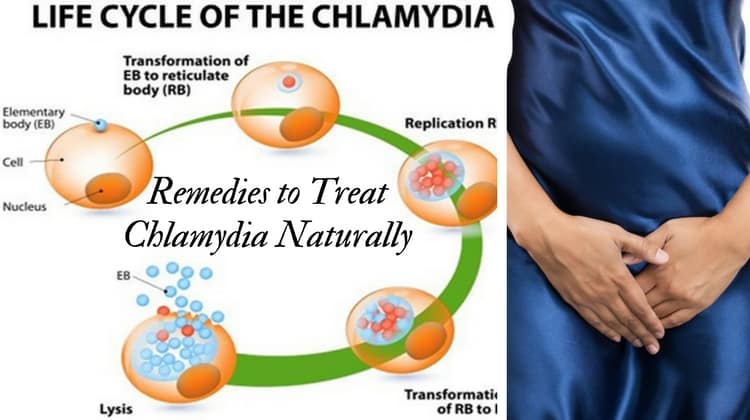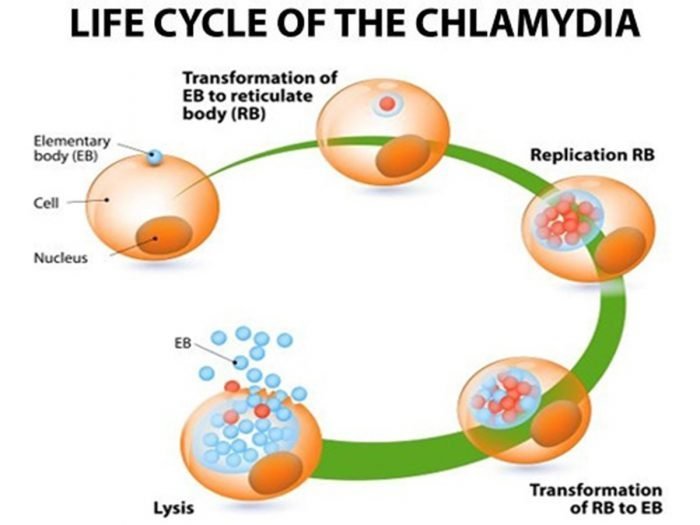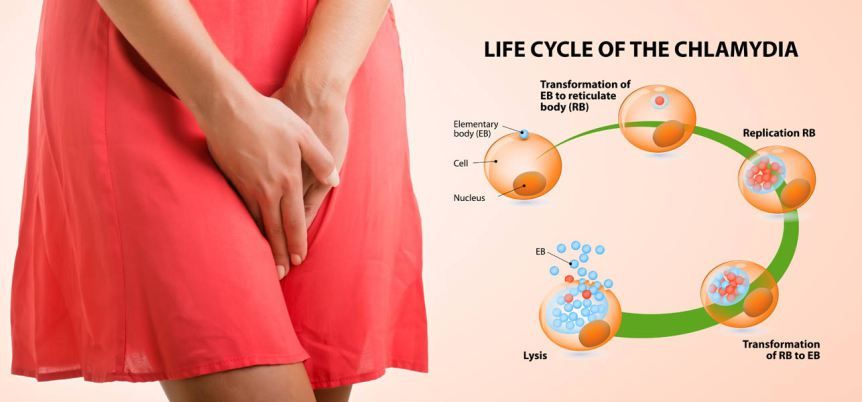How Soon Can I Have Sex Again
Dont have oral, vaginal or anal sex, or use sex toys, until you and your partner have both finished the treatment and any symptoms have gone. This is to help prevent you being re-infected or passing the infection on to someone else.
If youre given antibiotic treatment called azithromycin, youll still need to avoid sex for seven days after starting the treatment as thats how long it takes to work.
Put Sex On Hold During And After Chlamydia Treatment
If you were given a single dose of antibiotics to treat your chlamydia, you should not have any kind of sex for a full seven days after the day you took the medicine. If youre taking antibiotics for a week, wait another seven days after the last day of your treatment. Be sure to take all of the medicine that is prescribed for you.
Not having sex for seven days after treatment is important so you dont spread the infection to your partner or partners.
Medication stops the infection and can keep you from spreading the disease, but it wont cure any permanent damage that the infection caused before you started treatment. In women, such damage can include blocking the fallopian tubes, causing infertility.
If you still have symptoms for more than a few days after you stop taking your medicine, go back to see your doctor or other healthcare provider so they can check you again.
What Happens If Chlamydia Goes Untreated
Chlamydia often has no symptoms therefore, some people go untreated. Even with those who have symptoms stigma, access, or other reasons get in the way of getting medical attention. Not receiving prompt and proper treatment can create serious health problems. Chlamydia that goes untreated can increase the likelihood of contracting another STD, like gonorrhea or HIV/AIDS, or increasing the likelihood of transmitting that STD to someone else. It is also possible to develop reactive arthritis, or arthritis caused by the bodys reaction to an infection, because of chlamydia. This can affect the joints, urethra, and eyes.
For women, chlamydia that goes untreated can spread through your uterus to your fallopian tubes. Fallopian tubes connect the ovaries to the uterus and transport fertilized eggs during pregnancy. If untreated chlamydia spreads to this area, the result is pelvic inflammatory disease , affecting around 5% of women in the US.
Pelvic inflammatory disease, similar to chlamydia, can have no symptoms or just some pelvic or abdominal pain initially. Unfortunately, PID can do permanent damage to a womens reproductive system, including:
For men, chlamydia rarely leads to health problems. It is very rare for chlamydia to cause infertility in men, but sometimes the infection can spread past the penis causing fever or pain. In addition, it is possible for chlamydia to cause:
Read Also: Having Chlamydia While On Your Period
Azithromycin Vs Doxycycline For Chlamydia
Azithromycin and doxycycline are the most commonly prescribed drugs to treat chlamydia.
While azithromycin is prescribed in a single, one-gram dose taken orally, doxycycline is typically prescribed in a 100-milligram dose taken orally twice a day for seven days.
A 2014 meta analysis of 23 studies found that doxycycline had a slightly higher efficacy compared with azithromycin.
However, other research suggests that treatment with a single oral dose of azithromycin appears to be as safe and efficacious as a seven-day course of doxycycline for the treatment of uncomplicated genital chlamydial infection.
Talk to your healthcare provider about which medication is best for you.
How Long Does Treatment Take

Treatment time for chlamydia can vary from one to seven days. Azithromycin requires only one dose for one day, while you must take other antibiotics multiple times a day for seven days.
To cure a chlamydia infection, take the antibiotics exactly as prescribed by your doctor and for the full length of the prescription, being sure to take every dose. There should be no medication left at the end of the treatment period. You cannot save medication in case you acquire chlamydia again.
Contact your doctor if you still have symptoms but have taken all your antibiotics. You will need a follow-up test with your doctor
Recommended Reading: Why Is Penicillin Ineffective Against Chlamydia
What Can Happen If Chlamydia Is Not Treated
Chlamydia is a bacterial sexually transmitted disease that is caused by Chlamydia trachomatis. Like any other sexually transmitted disease, it is transmitted through unprotected sex and is most common in individuals with high risk sexual behavior. Chlamydia is most of the times left untreated as 80% women and 50% men are asymptomatic after Chlamydia exposure and whatever mild symptoms are experienced are either ignored or confused with other conditions.
The symptoms are usually noted after 2 to 3 weeks of exposure to the bacteria. In women, they present as abnormal vaginal discharge, abnormal bleeding from vagina or rectum, pain during sex, dysuria, pain or itching of the vagina or vulva, pelvic pain and sometimes sore throat. In men, it might present as discharge from penis, pain or burning on urination, swollen testicles, and/or itching, burning, redness, pain or erythema of the head of the penis, rectal pain or bleeding, also might cause sore throat and conjunctivitis.
Chlamydia is usually treated with antibiotics, mainly azithromycin, doxycycline or erythromycin.
What Does A Chlamydia Test Involve
- If you have a vulva, you may be asked to take a swab around the inside of your vagina yourself.
- A doctor or nurse may take a swab during an internal examination of your vagina and cervix .
- You may be asked to provide a urine sample. Before having this test, youre advised not to pass urine for 12 hours.
- A doctor or nurse may take a swab from the entrance of the urethra .
- If youve had anal or oral sex, a doctor or nurse may swab your rectum or throat . These swabs arent done routinely on everyone.
- If you have symptoms of conjunctivitis swabs will be used to collect a sample of discharge from your eye.
A swab looks a bit like a cotton bud but is smaller and rounded. It sometimes has a small plastic loop on the end rather than a cotton tip. Its wiped over the parts of the body that could be infected. This only takes a few seconds and isnt painful, though it may be uncomfortable for a moment.
Cervical screening and routine blood tests dont detect chlamydia.
If youre not sure whether youve been tested for chlamydia, just ask.
Recommended Reading: Does Azithromycin 250 Mg Treat Chlamydia
What Happens If Chlamydia Isn`t Treated
Not all people with Chlamydia will experience any complications. If the infection gets treatment early, it won`t probably cause any long-term damages. Still, with no treatment Chlamydia will spread to other body parts. The more times you get infected with it, the more like it is for you to experience complications.
- In men this condition may lead to an infection of the testicles and maybe even infertility.
- In women this infection may lead to inflammation and pain around the liver. With proper treatment, this usually gets better in time.
- In women this medical condition may spread to other important body organs leading to PID. In turn, this may lead to long-term damages, such as ectopic pregnancy, pelvic pain, infertility and blocked fallopian tubes.
- In both man and women More rarely, this infection may lead to joint inflammation. This is also known as SARA and it`s on occasion accompanied by eye and urethral inflammation. It occurs more rarely in women than men.
Practicing Safe Sex Methods
It is extremely important to practice safe sex methods in order for you to stop the spread or possible contraction of chlamydia. Abstaining from sex is the only 100% sure way to prevent spreading or contracting any sexually transmitted diseases, but there are other methods you can use to keep your chances of contracting or spreading chlamydia quite low. Safe sex methods you should seek to practice are:
Don’t Miss: How Long It Take To Get Rid Of Chlamydia
How Do You Prevent Chlamydia
Using a new male or female condom or dental dam every time you have sex is the best way to protect against chlamydia.
Chlamydia can be passed on by sharing sex toys. Always cover sex toys with a new condom and wash them after use to reduce your risk of getting chlamydia and other STIs.
Its important to regularly test for chlamydia, even if you dont have any symptoms, especially if youve had multiple sexual partners.
The contraceptive pill and other types of contraception wont prevent you getting chlamydia, and neither will PrEP.
How Does Chlamydia Spread
Chlamydia is spread when a person has unprotected sex with an infected person.
Because chlamydial infection often has no symptoms, many people do not realise they have the infection.
Even if you know a person well, you may not be able to tell they have an STI, because people can look healthy and still have chlamydia.
Remember, you can get chlamydia and other STIs from a new sexual partner who has in the past had sex with someone who is infected.
It can also be spread from a long-term partner who has had sex with other people.
Don’t Miss: Can Uti Antibiotics Cure Chlamydia
How To Get Rid Of Chlamydia
Chlamydia is a sexually transmitted disease that affects both women and men. It is caused by a bacterial infection that is transmitted by having oral, anal, or vaginal sex with a person who already has chlamydia. The infection is spread through semen and vaginal fluids, but it can infect the eyes and throat in addition to the vagina, cervix, penis, urethra, and anus. Chlamydia is the most common sexually transmitted bacterial infection in the US, and yet more than half of infected individuals exhibit no symptoms. Read more below to learn what to do if you have chlamydia.
How To Clear Chlamydia Without Antibiotics

Chlamydia is one of the most common sexually transmitted infections. While we are unable to recommend any treatment not recommended by the CDC in the treatment of chlamydia there are some who have utilized alternative treatment to reduce infection but does not cure it. These remedies include garlic, turmeric, or dieting.
Also Check: Can You Give Someone Chlamydia After Being Treated
How Will I Know If I Have Chlamydia
You can only be certain you have chlamydia if you have a test.
Anyone can get chlamydia. Youre more likely to have it if youre under 25, have a new sexual partner, or more than one sexual partner in the last year, and if you havent used condoms.
You should have a test if:
- you, or a partner, have or think you might have symptoms
- youve recently had sex without a condom with a new partner
- you, or a partner, have had sex without a condom with other partners
- during a vaginal examination, your doctor or nurse says that the cervix is inflamed and/or theres an unusual discharge
- a sexual partner tells you they have a sexually transmitted infection
- you have another STI.
If you live in England, and youre a woman who is under 25 and sexually active, its recommended that you have a chlamydia test when you change sexual partner and once a year.
If youre a man who is under 25 and sexually active, its recommended that you have a chlamydia test once a year if you are not using condoms with new or casual partners.
You could still have chlamydia even if a partner has tested negative. The only way to make sure you dont have chlamydia is to get tested yourself.
If you have chlamydia, youll be encouraged to be tested for other STIs as you can have more than one STI at the same time.
Why Do I Keep Getting A Chlamydia Infection
You can get chlamydia even after treatment. You may get it again for several reasons, including:
- You did not complete your course of antibiotics as directed and the initial chlamydia did not go away.
- Your sexual partner has untreated chlamydia and gave it to you during sexual activity.
- You used an object during sex that was not properly cleaned and was contaminated with chlamydia.
Don’t Miss: Drugs Used To Treat Chlamydia
What Can Be Done To Prevent The Spread Of Chlamydia
- Limit your number of sex partners
- Use a male or female condom
- If you think you are infected or have been exposed, avoid any sexual contact and visit a local sexually transmitted disease clinic, a hospital or your doctor. Either bring your sex partners with you when you are treated or notify them immediately so they can obtain examination and treatment.
What Should I Do If I Think I Have Chlamydia
If you think you have chlamydia, you need to see your doctor immediately and have a chlamydia test. You may have another STD with similar symptoms, and your doctor needs to know the exact STI you have so that you can get the best treatment.
Chlamydia tests involve collecting a urine sample or swabbing the affected area. Your doctor will send the specimen to a lab for testing to see if you have chlamydia or another type of STI.
If your test is positive for chlamydia, your doctor will prescribe an antibiotic immediately.
Don’t Miss: Chlamydia And Type 2 Diabetes
What Happens If I Dont Get Treated
The initial damage that chlamydia causes often goes unnoticed. However, chlamydia can lead to serious health problems.
If you are a woman, untreated chlamydia can spread to your uterus and fallopian tubes . This can cause pelvic inflammatory disease . PID often has no symptoms, however some women may have abdominal and pelvic pain. Even if it doesnt cause symptoms initially, PID can cause permanent damage to your reproductive system. PID can lead to long-term pelvic pain, inability to get pregnant, and potentially deadly ectopic pregnancy .
Men rarely have health problems linked to chlamydia. Infection sometimes spreads to the tube that carries sperm from the testicles, causing pain and fever. Rarely, chlamydia can prevent a man from being able to have children.
Does Chlamydia Cause Cervical Cancer
No, chlamydia doesn’t cause cervical cancer.
It’s possible to get a sexually transmitted infection by having sex with someone who has an STI, even if they have no symptoms.
The following measures will help protect you from most STIs including chlamydia, gonorrhoea and HIV.
If you have an STI, they’ll also help prevent you from passing it on to someone:
- Use condoms every time you have vaginal or anal sex.
- If you have oral sex , use a condom to cover the penis, or a dam to cover the vulva or anus.
- Avoid sharing sex toys. If you do share them, wash them or cover them with a new condom before anyone else uses them.
Also Check: What To Take For Gonorrhea And Chlamydia
How Long Does It Take To Get Rid Of Chlamydia
By | Aug. 24, 2010, 11:11 a.m.
Category:
How long does it take to get rid of chlamydia?
It depends. If youre diagnosed with chlamydia, your health care provider will probably prescribe an antibiotic. In some cases, treatment is possible with a single dose of medication in the health care providers office. Other medications must be taken for seven days. Its important to make sure that you take the antibiotic exactly as directed for as long as its prescribed even if your symptoms go away. Avoid having sex until your treatment is complete and the infection is cured. Its also important to let your sex partner know that you have chlamydia so they can get tested and treated, too. Some health care providers will give you medications to take home to your partner.
Chlamydia is a sexually transmitted infection thats caused by a type of bacteria called chlamydia trachomatis. Both women and men can get it by having unprotected vaginal or anal sex with an infected partner. It can also be spread from a woman to her fetus during birth, and rarely, from the hand to the eye and, less likely, during unprotected oral sex. Each year, more than three million people of all ages become infected with chlamydia.
What Antibiotics Do You Get For Chlamydia

Chlamydia is one of the most common STDs. It can be treated easily if caught early. Some of the most recommended antibiotics used to treat chlamydia are azithromycin and doxycycline. Azithromycin is typically given as 2 tablets one time while doxycycline is given as 2 capsules a day for 7 days. These antibiotics are most effective if both partners have received treatment and have taken their prescription as directed.
Don’t Miss: How Long After Chlamydia Treatment Are You Contagious
Does Chlamydia Treatment Have Side Effects
An antibiotic called Doxycycline is the most common medicine used to treat chlamydia. Like most medicines, it can cause mild side effects. The most common side effects of Doxycycline are nausea, vomiting, upset stomach, loss of appetite, mild diarrhea, skin rash or itching, change in skin color, vaginal itching, or discharge. These side effects should go away after you finish taking the medicine. Talk to your nurse or doctor about any medicines youre already taking and any medical issues you already have before taking Doxycycline.